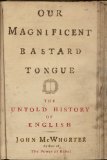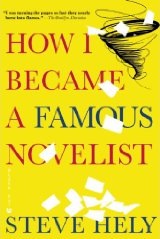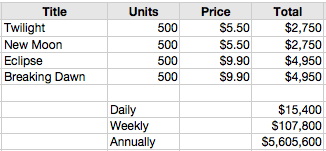
Over the weekend, I read John H. McWorter’s book Our Magnificent Bastard Tongue: The Untold Story of English
, which I’d recommend for any reader interested in language history, grammar, or why [English is Not Latin](http://johnaugust.com/archives/2005/english-is-not-latin).
McWhorter quickly recaps the standard story of how English came to be. You had Angles, Saxon and Jutes coming to Britain with their Germanic language, which over time shed most of its noun cases and verb conjugations. When the Normans came, they brought French — and with it, a ton of words that we already had in slightly different forms. Thus we end up with both *royal* and *regal*, plus a lot of other words pulled in from Latin. Swedish Vikings brought words too, particularly words related to the sea. As a result of all this in-mixing, English has a very, very large vocabulary.
McWhorter’s central thesis is that English is actually a lot more peculiar than commonly thought, and that by glossing over its idiosyncrasies, linguists have missed some tantalizing history.
He examines our thoroughly weird “meaningless do” — *Do you like eggs?* *I love eggs, but my wife does not.* — which is so atypical that you need to look for an explanation. And you don’t have to look far. The Celtic languages, Cornish and Welsh, do much the same thing with “do,” and were already on the island.
Standard history has the Celts getting wiped out pretty quickly and thoroughly, but McWhorter argues they co-existed for a significant time. Celts may have also given us our unusual present tense, which is more commonly the progressive *I am talking* than the straight *I talk.*
Notably, they’re not always interchangeable:
MAN
I write a book.
WOMAN
Wow, you’re not a native speaker, are you?
(I’ve written about the [progressive tense](http://johnaugust.com/archives/2009/present-tense) as it relates to screenwriting.)
McWhorter’s a witty writer, but he has a habit of going on a bit too long after his point is made. I found myself skipping pages in the section on Sapir-Whorf hypothesis. (Disproved. Got it. Move on.) But on the whole, I recommend it for any fan of language.


 As it happens, all four of Stephenie Meyer’s Twilight books fall into this range, and have been here for quite a while. They’re priced at $5.50 (for the first two) and $9.99 (for the second two).
As it happens, all four of Stephenie Meyer’s Twilight books fall into this range, and have been here for quite a while. They’re priced at $5.50 (for the first two) and $9.99 (for the second two). 